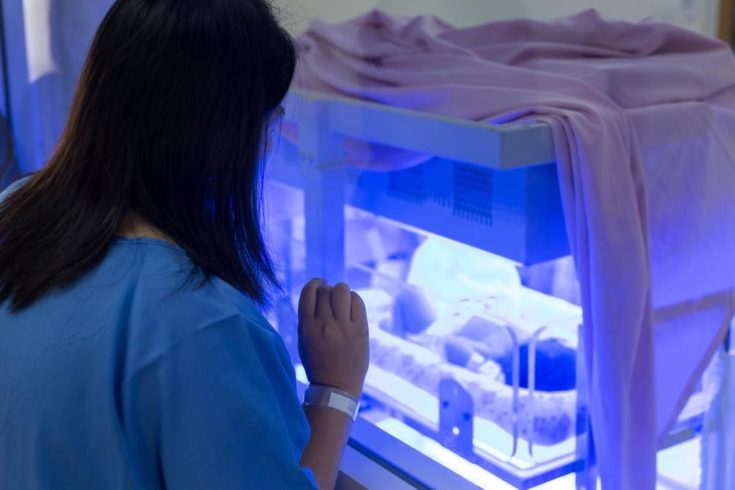Disclosure: This post may contain affiliate links, meaning we get a commission if you decide to make a purchase through our links, at no cost to you. Please read our disclosure for more info.
Premature babies are more likely to develop jaundice than full-term infants because the condition is caused by the baby’s liver not being developed enough to process bilirubin, a yellowish substance that is found in the blood. If your baby was born before you were 37 weeks pregnant and now they have jaundice, prematurity could be the reason.
Newborns who have jaundice may have yellowed eyes, or their skin may take on a yellowish hue. This is because there is too much bilirubin in their system. Normally, when an infant’s liver is fully developed, it will process the bilirubin, which will then leave their body when the baby defecates.
While the cause of preterm delivery is often unknown, in some cases there are warning signs. If you believe your baby was born prematurely because your obstetrician failed to diagnose or treat any of the following signs during your pregnancy, visit here to get legal advice.
- Menstrual cramps
- Vaginal bleeding
- Low, dull pain in your back
- Pressure in your pelvis or vagina
- Increased vaginal discharge
- Uterine contractions that are fewer than 10 minutes apart
- Reduced fetal movement
Have your baby evaluated by a medical professional if you’ve already left the hospital and you notice your baby is showing any signs of jaundice. If your preemie is still in the NICU, your medical team is most likely already monitoring them for the condition.
Aside from yellow eyes and skin, the signs of jaundice in a newborn can include listlessness, failure to thrive or gain weight, and feeding difficulties. You may also notice your baby is making strange, high-pitched cries.
How Newborn Jaundice in Preemies Is Treated
When a preemie is born after 35 weeks, often, there is no special treatment needed for jaundice and the condition will resolve on its own. If your baby was born before 35 weeks or their bilirubin levels are high, they may also be treated through the use of phototherapy.
Phototherapy uses special lights called “bili lights” to pass through your baby’s skin and help them break bilirubin down in their bodies. If you’ve seen a baby in an incubator in the NICU wearing nothing but a diaper and eye-covering, chances are that the infant was receiving treatment for jaundice.
Babies may receive phototherapy treatment for several days. Their levels of bilirubin will be evaluated by your medical team at least once a day. If your preemie isn’t responding to this painless therapy, your doctor may recommend an exchange transfusion. This is a riskier procedure that involves giving your baby a transfusion with donor blood.
When to Worry About Your Baby’s Jaundice
If your baby’s level of bilirubin is unusually high they will need treatment because it carries a risk of potential brain damage. When a baby is born early, they are more likely to have an unusually high level of bilirubin than a full-term infant.
The type of brain damage that can be caused by jaundice is called kernicterus. It can lead to complications such as intellectual disabilities, hearing loss, and cerebral palsy. In the most extreme cases, it can even be fatal.
Before proceeding with any treatment for your preemie, carefully evaluate the pros and cons with your medical team. It is important that you are fully informed before you consent to any treatment for your baby.
Call your doctor right away if you notice your baby’s skin or eyes are becoming yellower or they are showing any other signs that concern you. If your baby is still in the NICU, you can alert the nurses to any concerns and they will be happy to answer your questions. Your baby’s health is also their first priority, just as it is yours.

